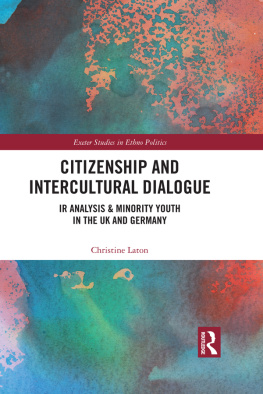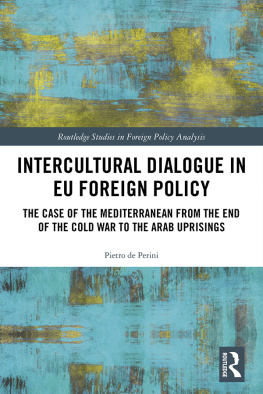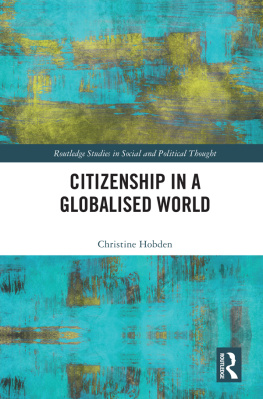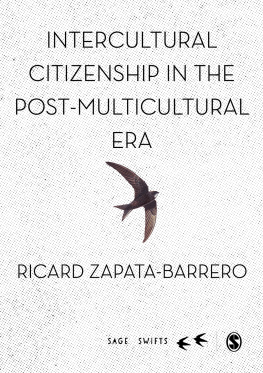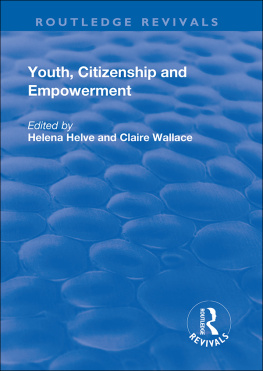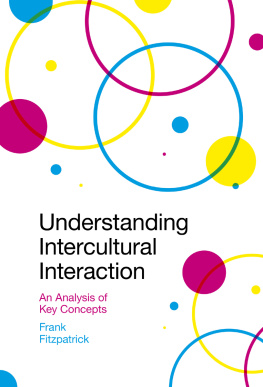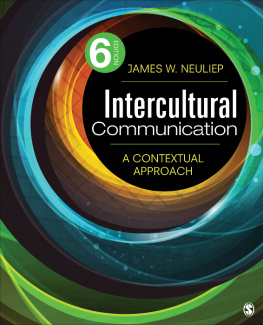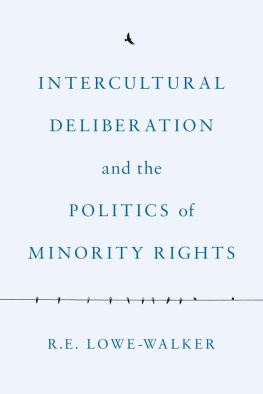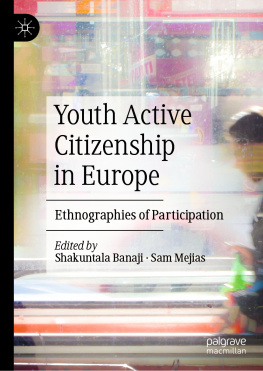Citizenship and Intercultural Dialogue
In the wake of tragic terrorist attacks in Western Europe, so-called parallel communities have come under increased scrutiny and pressure to be engaged and integrated in the politics and society of the country of settlement. In this context, the tools of intercultural dialogue and citizenship have been proposed to bridge the gap between majority and minority communities. Yet, how are these concepts understood on the ground?
This book explores perceptions of citizenship and intercultural dialogue among minority youth in Berlin and London, chosen for their contrasting citizenship and immigration policies. Germany has a strong ethnic heritage and the presence of a large minority community from Turkey. The policies and relationship with the Turkish community have often served to perpetuate cultural and ethnic boundaries, their presence overshadowing the numerous other ethnicities living within Germany. In the UK, the large presence of immigrants of Afro-Caribbean and Asian descent often dominates centre stage in a much more territorially defined political context, while the needs and demands of smaller communities are not commonly known. Nonetheless, these smaller communities shape and even offer unique insights into the way that local contexts interact with international and transnational structures. It is argued that in both cities, minority youth communicated feelings and experiences of marginalisation and contestation, generally expressing a sense of belonging to their local neighbourhoods but not to broader society. The book explores the process of valuisation, the idea that a value is put on an immigrant according to their desirability or undesirability, based on ethnicity or skills. Furthermore, it assesses the role of education as a mediator between state and society.
By arguing that local engagement has international ramifications, and highlighting the importance of the role of youth in international politics, this book offers a new perspective on International Relations and Diaspora Studies.
Christine Laton completed her PhD in Ethno-Political Studies at the University of Exeter, UK. Her research focuses on the positioning of minority youth and ethnic minority communities from an International Relations perspective. Her other interests relate to national education systems, the role of local organisations to engage minorities, and the reconfiguration of cultural and political boundaries in the global context.
Exeter Studies in Ethno Politics
Series Editor: Gareth Stansfield
University of Exeter, UK
The Kurdish Question in Turkey
New perspectives on violence, representation, and reconciliation
Cengiz Gunes and Welat Zeydanlioglu
The Challenge of Ethnic Democracy
The state and minority groups in Israel, Poland and Northern Ireland
Yoav Peled
Education and Ethno Politics
Defending identity in Iraq
Kelsey Shanks
Decentralisation and the Management of Ethnic Conflict
Lessons from the Republic of Macedonia
Aisling Lyon
The Iraqi Federation
Origin, operation and significance
Farah Shakir
Iraqi Kurdistan, the PKK and International Relations
Theory and ethnic conflict
Hannes erny
Peace and Ethnic Identity in Northern Ireland
Consociational power sharing and conflict management
Henry Jarrett
Citizenship and Intercultural Dialogue
IR Analysis & Minority Youth in the UK and Germany
Christine Laton
For a full list of titles in the series: www.routledge.com/middleeaststudies/series/EAES
First published 2019
by Routledge
2 Park Square, Milton Park, Abingdon, Oxon OX14 4RN
and by Routledge
711 Third Avenue, New York, NY 10017
Routledge is an imprint of the Taylor & Francis Group, an informa business
2019 Christine Laton
The right of Christine Laton to be identified as author of this work has been asserted by her in accordance with sections 77 and 78 of the Copyright, Designs and Patents Act 1988.
All rights reserved. No part of this book may be reprinted or reproduced or utilised in any form or by any electronic, mechanical, or other means, now known or hereafter invented, including photocopying and recording, or in any information storage or retrieval system, without permission in writing from the publishers.
Trademark notice: Product or corporate names may be trademarks or registered trademarks, and are used only for identification and explanation without intent to infringe.
British Library Cataloguing-in-Publication Data
A catalogue record for this book is available from the British Library
Library of Congress Cataloging-in-Publication Data
A catalog record for this book has been requested
ISBN: 978-0-8153-4722-4 (hbk)
ISBN: 978-1-351-16952-3 (ebk)
Typeset in Times New Roman
by Apex CoVantage, LLC
To My Parents
As I prepared this manuscript, I was overwhelmed by the generosity and openness of so many people who have helped this project to happen. From local schools and teachers to friends and family, this would not have been possible without you, and I am deeply grateful for your kindness. Having said that, there are a few people whom I would like to thank specifically.
The staff and students of the Exeter Centre of Ethno-Political Studies, particularly my supervisor, Gareth Stansfield, as well as Clemence Scalbert-Yucel and Anaid Flesken.
My friends Duygu Tekgul and Ozker Kocadal, who offered insights into the Turkish and Turkish-Cypriot experience in Europe.
Reinhild Kaiser, for the extensive time that she took to help me coordinate interviews with students and provide general support for this undertaking.
Dave Hughes, for his insightful comments that inspired some of the key themes in this work.
Madeline Mickler, who assisted in the preparation of the manuscript.
My husband, without whose love and support (and proof-reading skills) I would not have completed this work.
Thank you.
1
Introduction
Since the end of the Cold War, Europes relations with its neighbours have changed dramatically. European Union (EU) expansion to include former Soviet countries as well as states in the Mediterranean has impacted both the internal structure and institutional make-up. The reduction of internal barriers and the free movement of trade and labour have challenged traditional approaches to security and citizenship, contributing to questions about Europes present and future identity.
Compounding the challenge is the presence of large numbers of immigrants from outside of the EU. Responding to these changes, a number of countries have reformed their naturalisation policies in the last two decades, sometimes advocating a shift from jus sanguinis to jus soli citizenship by reinventing the nation to be defined by territory instead of (or as well as) descent. It was reasoned that jus soli citizenship may have the capacity to partially correct for the democratic deficit experienced by a number of Western European countries (Joppke and Morawska 2003). Thus far, however, the transition to this new national self-conception has not progressed smoothly, since both the country of settlement and those of immigrant descent have a set of notions concerning what it means to belong. These notions of belonging often have underpinnings of an ethnic identity, based on factors such as language, race, and religion.

